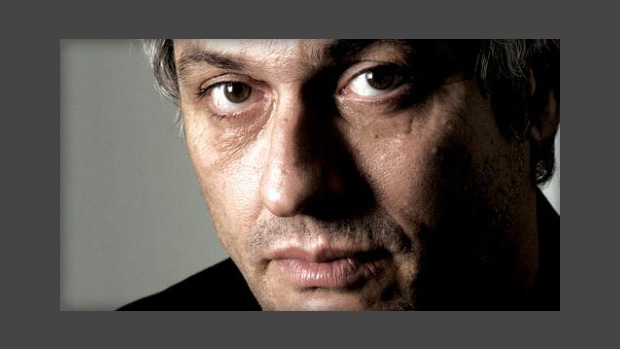
Marc Ribot
“The melancholic music of Negro American folk origin, the blues emerged slowly at the turn of the 19th century from Texas, Louisiana, the Piedmont and Mississippi Delta, a rural music that captured suffering, anguish and hope …” The Encyclopedia of Call & Response
If you know the guitarist Marc Ribot–who recently cut an LP in Los Angeles with the singer/songwriter Tift Merritt – you know that he often skates along the boundary between dissonance and noise .
The Gordons – mother Lorraine and daughter Deborah, proprietors of the Village Vanguard in New York City – were well aware. They were also fans, with Deborah inviting Ribot to play her mother’s fabled Seventh Avenue club after seeing Marc in London.
In June 2012, Ribot was about to take the Vanguard stage for the first time as a headliner – backed by Chad Taylor on drums and Henry Grimes on bass and violin – when one of the Gordons took him aside and said, “Why do you have to play that shit? Play some blues.”
The blues (“A chair,” said John Lennon, “not a design for a chair or a better chair.”) is the essence of Ribot’s work in the same way that celery is a key foundation in traditional gumbo. But you don’t always taste the celery.
Ribot is a musician un-beholden to a genre much less a set list. A student of Haitian folk music, he visits the Caribbean nation about once a year and wrote the score for a 1929 silent fantasy film by Yakov Protazanov called Aelita.
Given such vast reservoirs of material, they didn’t quite know what his trio would play at the Vanguard.
“I wasn’t sure if we were going to do standards and we didn’t,” he said. “And we didn’t play blues. But when I came off the stage Debbie said, ‘What you just played is the blues.’ I guess it was the intensity of it.”
The observation reminded me of a flamenco guitarist I met in Spain last month in Granada as he played for euros in a park near the old Jewish quarter. His name was Salomon and I asked if he could play blues, stamping out the iconic and primitive opening to Bo Diddley’s “I’m A Man.”
He said yes but only if he could sing me a flamenco first. And it was the blues, as was the flamenco he played next, building it upon a 12-bar Delta chassis.
“You can’t fake the blues,” said Ribot, who on St. Patrick’s Day played Sunny’s Bar, the dive in Red Hook, Brooklyn recently made famous in the memoir Sunny’s Nights, by Tim Sultan. “You can fake a lot of things by doing them as the blues, but it’s not the same thing.”
It is often the case of the frustrating divining rod of authenticity going by the name, “I’ll know it when I see it.”
And though Ribot is not an ardent Johnny Winter fan (he was somewhat taken aback when I asked him, as I do all musicians, for an opinion of Johnny’s music), he does recognize the late Texas guitarist as the real thing.
“I remember him as a very soulful blues player,” said Ribot, who recalled seeing Winter, who died in Zurich in 2015, at least once in concert. “What more can you ask for than dying on tour?” ![]()


